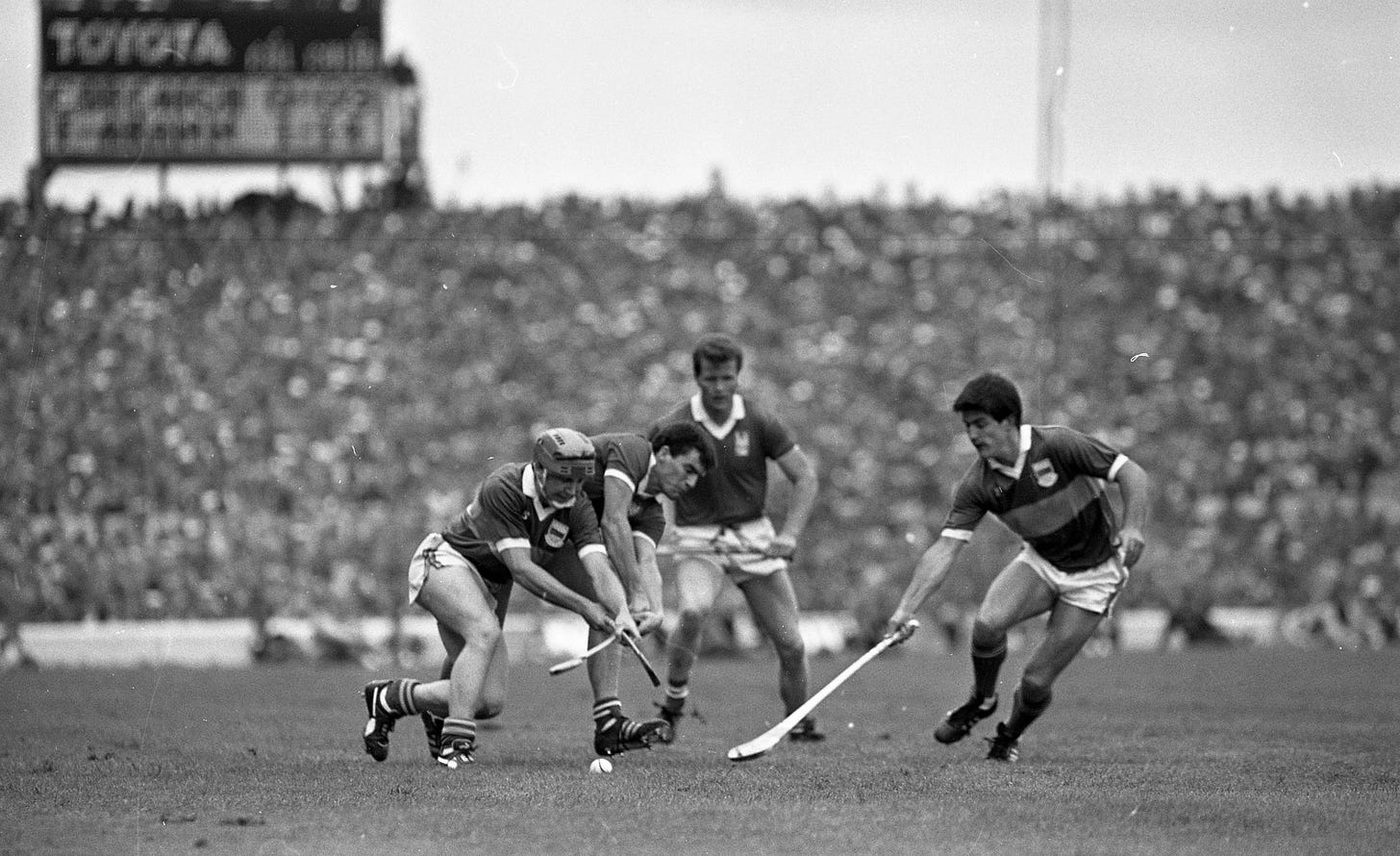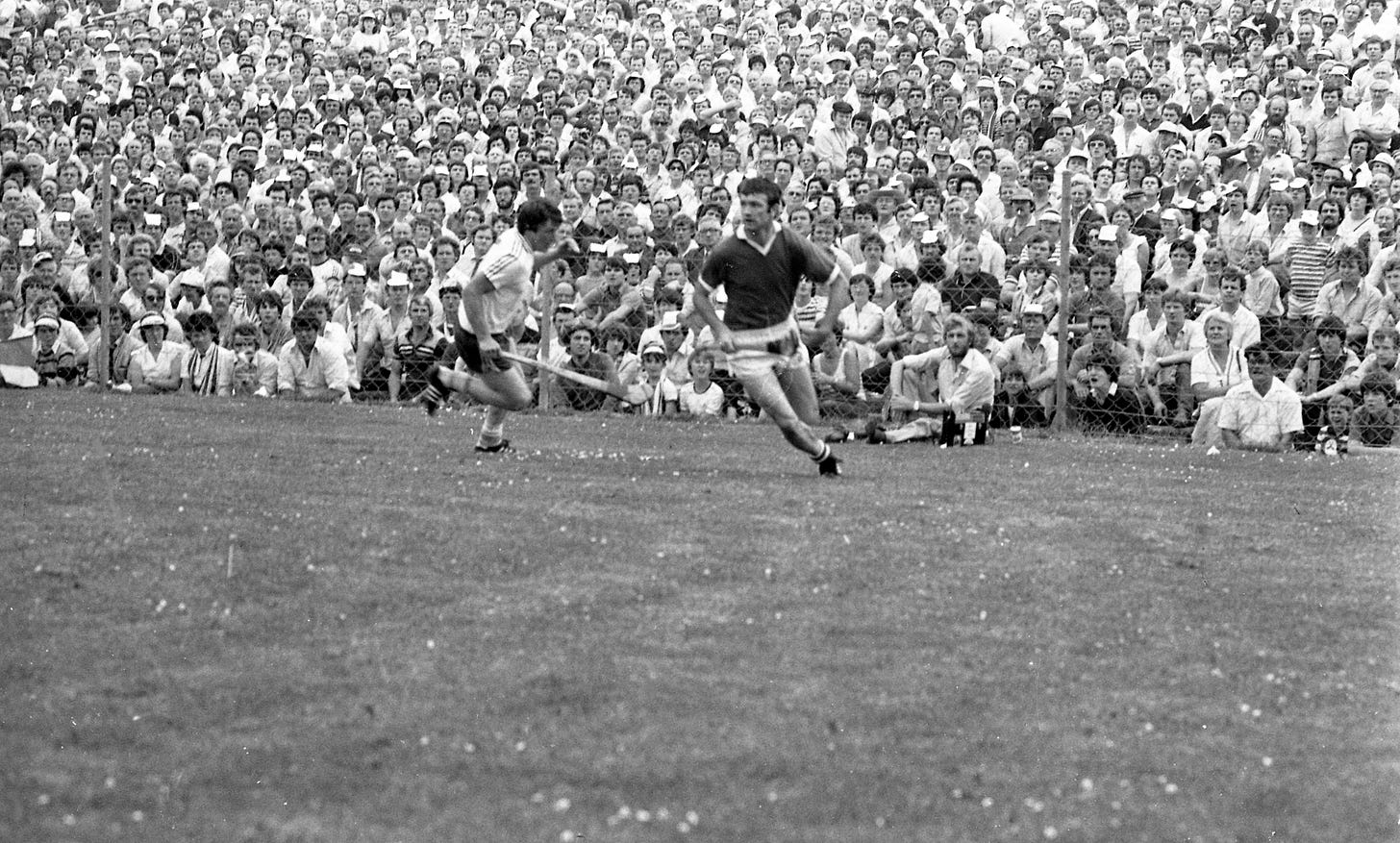3 Cork Munster hurling matches on GAAGO is not what Cork supporters should be getting worked up about
The GAA is goina GAA (=make money). Cork should accept that and worry more about the county winning a first All-Ireland senior hurling title in nearly 20 years.

Though it likes to claim otherwise, at senior intercounty level, the GAA is a business with one modus operandi: to make profit. This week’s announcement and subsequent outrage and media coverage surrounding next year’s hurling championship ought to be viewed for what it really is; a simple business decision garnering an emotional overreaction from people living in cloud cuckoo land.
For many years now, the hierarchy in Croke Park has proven time and again that they are wholly unconcerned by what the public think of their decisions regarding broadcasting and scheduling. Moving the All-Ireland finals from their traditional slots in September to accommodate American football matches and large scale concerts in Croke Park at the end of summer, being a prime example of this attitude.
If there is an opportunity to make money, then the GAA are going to take advantage of it. This however, is not a criticism of the organisation, it merely reflects a wider development in both business and society, which unless you want to be left far behind your competitors, must be obeyed at all times and is what Jacques Ellul referred to as “technique”. In short, this equates to a striving for efficiency in every aspect of a person or group’s ordering.
Some outspoken commentators, desperate to be seen to be mindful of the ordinary GAA supporter, have suggested that the GAA should be doing more to promote the game of hurling and by putting matches behind a paywall they are denying certain people the opportunity to see their beloved heroes in action. This misses the point entirely and shows a willful ignorance for how the GAA has evolved in the past twenty five years.
The current hurling championship is sponsored by EIR (owned by a French company), Bord Gáis Energy (owned by a British company) and Centra (owned by Ireland’s largest wholesale food company Musgrave Group). Prior to this, it was sponsored by American Insurance giant, Liberty Insurance and Abu Dhabi’s Etihad Airways. It is first and foremost a business, answerable only to its sponsors and if it makes business sense to have pay per view matches, then it will go ahead and do that, regardless of any disapproval the decision might be met with.
Followers of hurling, the most insecure breed of sports supporter, constantly feeling the need to compare their game with golf or insist on deeming it superior to football, are in urgent need of a reality check.
At any one time, there are only ever about six counties capable of winning the All-Ireland. It is a sport played by a very small percentage of the population, and will in all likelihood remain so. This idea that “hurling people” would like to grow their sport is a fantasy. No one in the traditional big three of Cork, Kilkenny and Tipperary is happy that Limerick are dominating the sport; imagine if they had another five or ten genuine counties to contend with.
The hurling championship after all, is not even an All-Ireland competition. No county in Ulster is going to win it. Only one county in Connaught or Leinster has a chance of winning and what you’re left with then is the Munster Championship, a competition so sacred they turned it into a round robin format where most of the matches are of no real importance, including the final.
So what are people even missing by not seeing a few matches where losing has no repercussions?
The reason the Munster championship has degenerated into a mickey mouse competition where each team has to play each other, is because a decision was taken to have more games, to have higher attendance, to have more content, to make more profit. And there is an audience for this growth and it is this audience the GAA is meeting the demand of by charging to watch the games. If the demand and audience weren’t there, they wouldn’t do it. The championship is therefore a product, run by big business and competed for by teams increasingly indistinguishable from the modern workplace.
For anyone who disagrees with this, listen back to Cian Lynch’s acceptance speech after last year’s final where he thanked selectors, strength & conditioning coaches, their medical team, physios, a logistical team, a team performance coach, statisticians, a nutritionist and lastly their billionaire owner/sponsor. With a few minor tweaks, a similar speech could easily be given up at Apple on Hollyhill.
In matches nowadays, not overly dissimilar to places of work, players aim to repeat familiar processes that have been practiced ad-nauseam in training. Real play and enjoyment, improvisation and spontaneity have all but disappeared. Look at how players in the past used to celebrate their goals, the “silly” jumps into the air. These were genuine expressions of joy, now replaced by muted acknowledgements by cogs in a machine, whose thoughts move swiftly on to slotting back into the system. Real human values have been lost to the pursuit of efficiency and following of strict rules, all of which reflects the ridiculous, misplaced levels of reverence that modern sport is treated with.
In stark contrast, twenty five years ago, Offaly won the All-Ireland hurling final beating Kilkenny in the decider; an unthinkable occurrence nowadays. During the celebrations Johnny Pilkington was asked if he had any advice for the children of Offaly who’d like to hurl for their county in the future. “Yeah” he replied, “don’t go drinking with the Troy brothers”. There was someone who realised that hurling was only a bit of fun and not to be taken too seriously.
A little further perspective then. The ash tree, forever associated with the game of hurling, is predicted to die out in Ireland in the next ten to twenty years. Unlike three Cork hurling matches not being shown on free to air television next year, this is an actual outrage. But why aren’t people giving this the consideration it deserves? Why aren’t hurling folk up in arms about not having the material to make hurls out of?
Because they’ve solved this minor inconvenience rather easily, by either having the wood imported from eastern Europe or making new hurls out of bamboo. What this illustrates is an often completely overlooked point; sport beyond local or community level is incredibly detrimental to the environment, but it is so deeply intertwined with big business that this must never be mentioned.
So what can be done about the GAA’s decision? Well, if people in Cork are so worried about promoting the game within the county, perhaps they shouldn’t be looking to the GAA to show more matches and instead they could take a more novel approach, like winning a senior All-Ireland. It is coming up to twenty years since they last did so and given that each year they have about a one in six chance of bringing home the Liam McCarthy cup and that they have the largest pick of players of any county in the country, this might be a good place to start.
Perhaps with their recent underage success a return to the summit of the senior game might not even be too far away, but to bridge this gap, they will have to overcome a formidable green and white machine. But how will they achieve this? Probably, they will either need to break the machine, or become a better, more efficient version of one themselves.
Much to look forward to then and if you want to watch this battle of machines, systems and processes unfold, you can purchase your subscription at GAAGO.
Pádraig O’ Connor is a writer and T+D’s resident reviewer.
The Douglas hurler keeping the craft of hurley making alive
When you leave Adam Lingane’s workshop, come out the gate and cross the green in front of his parent’s house about five miles bang ahead in the distance is the unmistakable white roof of the south stand of Páirc Uí Chaoimh. The view feels appropriate and cinematic. At 19, Adam might be one of …








Yerra, one can only assume the writer of this is a bitter Kerry man living in rebel land.
Great, thought-provoking article. I'd agree with all the points except this one statement. "No one in the traditional big three of Cork, Kilkenny and Tipperary is happy that Limerick are dominating the sport; imagine if they had another five or ten genuine counties to contend with". They aren't happy as they would like to be winning it, that's the point of being invovled in the competition. But very few would not be happy if hurling became more popular around the country and expanded into all counties. In fact I believe that they would be overjoyed.